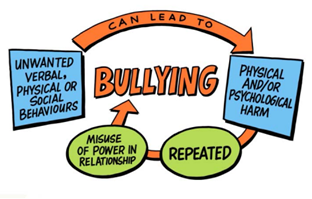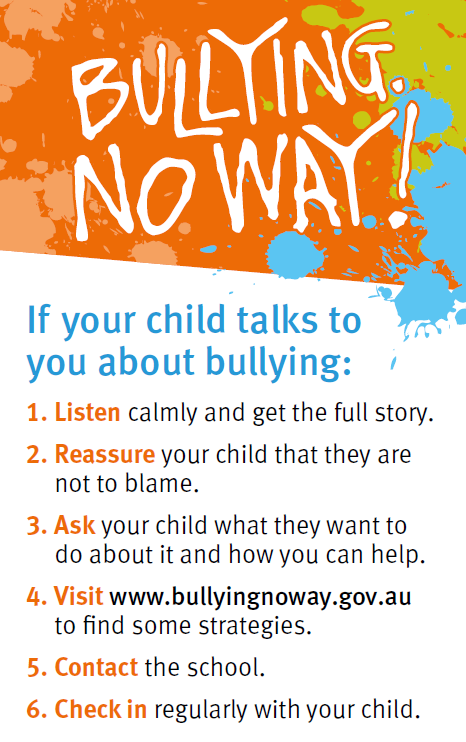Friday 18 August 2023 is the National Day of Action against Bullying and Violence (NDA). It is an important day to mark Australian school students standing together in their communities to say Bullying. No Way!
At Notre Dame College we aim to create a safe and supportive school community for everyone. We know that parents are an important part of our work to prevent bullying and to respond effectively if it happens. Stopping bullying involves everyone. As parents it is important to listen and support your children who speak up about bullying, as the research has shown students are more likely to talk to their parents first before their friends or teachers.
What is defined as bullying?
The national definition of bullying for Australian schools says:
Ongoing and deliberate misuse of power in relationships through repeated verbal, physical and/or social behaviour that intends to cause physical, social and/or psychological harm.
It can involve an individual or a group misusing their power, or perceived power, over one or more persons who feel unable to stop it from happening.
Can happen in person or online, via various digital platforms and devices and it can be obvious (overt) or hidden (covert).
Bullying behaviour is repeated, or has the potential to be repeated, over time.
Bullying of any form or for any reason can have immediate, medium and long-term effects on those involved, including bystanders.
Single incidents and conflict or fights between equals, whether in person or online, are not defined as bullying.
If your child comes to you seeking assistance about bullying, follow these helpful tips on what to do and say:
Listen calmly and get the full story.
Your calm response is important to allow your child to tell you all about the situation. After they’ve told you their story, ask questions to get more details if you need: who, what, where, when.
Reassure your child that they are not to blame.
Many children blame themselves and this may make them feel even worse. You could say things like, ‘That sounds really hard to deal with. No one should have to put up with that,’ or ‘I’m so glad you told me. You should be able to feel safe at school; that’s not fair at all’.
Ask your child what they want to do about it and how you can help.
A critical part of your response is to avoid jumping in to solve the problem. While it is natural to want to protect your child, helping them to find their own solution is a better option. It helps them feel they have some power in the situation.
Visit www.bullyingnoway.gov.au to find some strategies.
The website has tips and ideas for different bullying situations.
Contact the school.
Your child may be reluctant for you to do this, so discuss the idea and reassure them that the school would want to know and is able to help.
Check in regularly with your child to keep the conversation going. It can take time to resolve issues, so check in regularly with your child about their experiences and their feelings. Your ongoing support is important.
Thank you for your support to make our school a great school for everyone.




